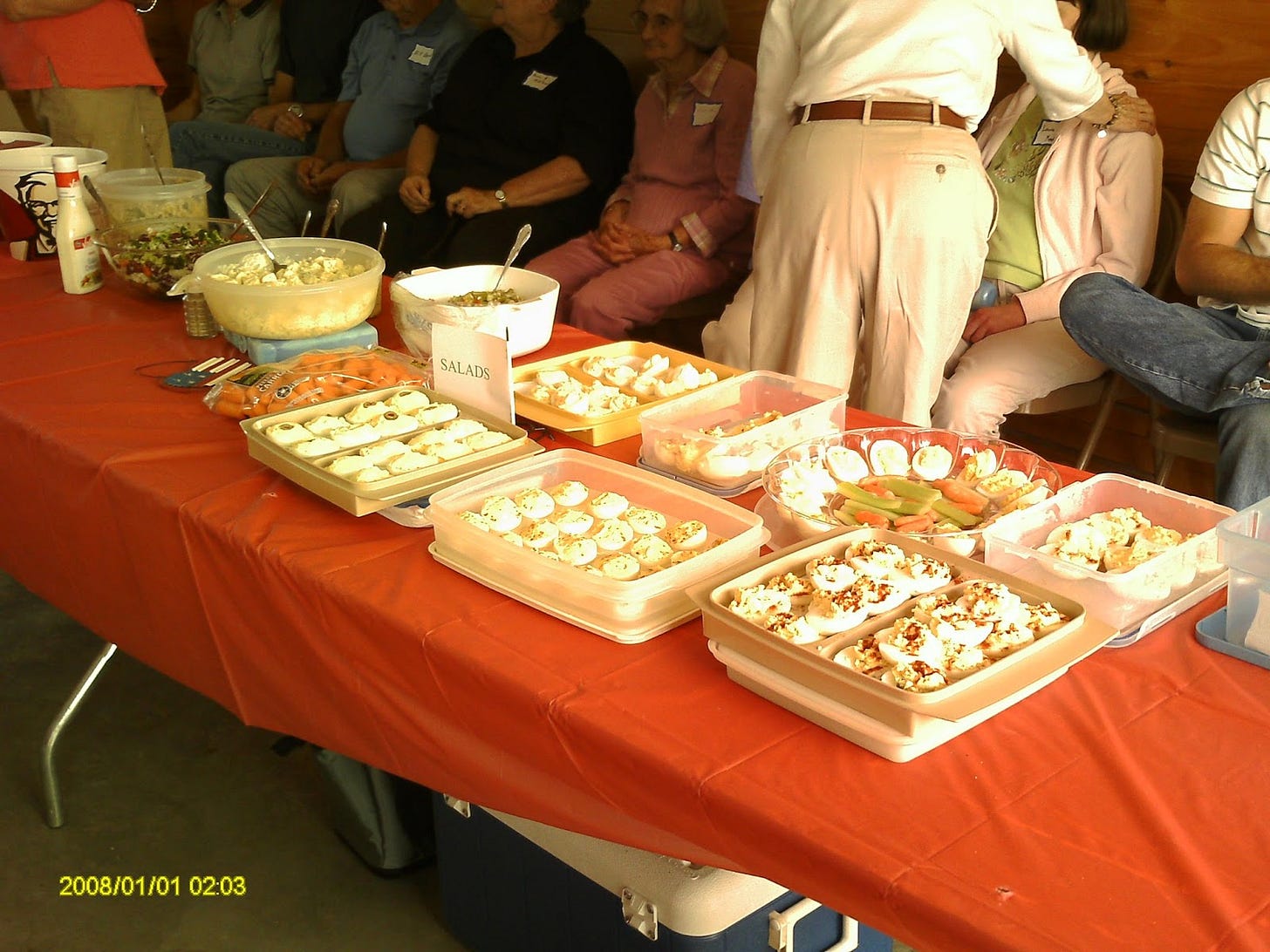Some of you have heard this story–even if you have, though, it’s a good reminder of the occasion I celebrate today. It's a good holiday. It started years ago when my Aunt Julie, who spent her childhood in North Carolina, brought her husband, my Uncle Rick, to a family reunion in North Carolina. Uncle Rick was like an anthropologist when he was among southerners--and at this reunion, it was the deviled eggs which fascinated him.
I admit that, even for southerners, my family has quite a thing for deviled eggs. They're awesome. At that particular reunion, Uncle Rick took quite a few photos of the table of deviled eggs, especially the one triple-decker plate that held two plates of eggs as well as a bowl of relish.
It was a while after that that my great aunt Billie died. Aunt Julie called my great-grandmother to see how she was doing, and she told her that some of Billie's sisters were there, and that they were eating some deviled eggs, talking about how much Billie had loved deviled eggs. When Aunt Julie reported this to Uncle Rick, he once again asked what the deal was with us southerners* and deviled eggs.**
In a fit of making fun of the yankee, Aunt Julie proceeded to explain that "Deviled Eggs for the Dead" was a southern tradition, connected to the Mexican "Day of the Dead" festivities, and more general All Saints Day remembrances. As many cultures do, on the first or second day of November, southerners make their most beloved foods so that their ancestors can partake of the foods' aromas, and remember family members who have been lost. Uncle Rick, in his anthropological approach to all things southern, thought it sounded plausible.
So, after that, every year around Halloween, Aunt Julie and I would make deviled eggs and call each other on the phone and tell family stories. What started as a joke on the yankee turned into a beloved tradition. Since Aunt Julie died in 2005, I've carried on the tradition. Since then, other friends and family members have joined me in celebrating this day of remembrance with deviled eggs and their own stories of their families.
The eggs are done and in the refrigerator chilling. I look forward to my remembrances over the next few days.
*Granted, Aunt Julie last lived in the South in the 1950s, but she still counted as a southerner.
**He would later ask me in a similar fashion what the deal was with women in our family and baskets. We tend to have hundreds of them. Like deviled eggs, baskets are also awesome.
(Note the sign on the table below.)



Thanks for sharing these, Monica. If you ask me, I think we as a society need to eat more deviled eggs. Don't you think? :)
What a great story, Monica. I love that what started with good-natured ribbing ended up in a meaningful tradition for you.